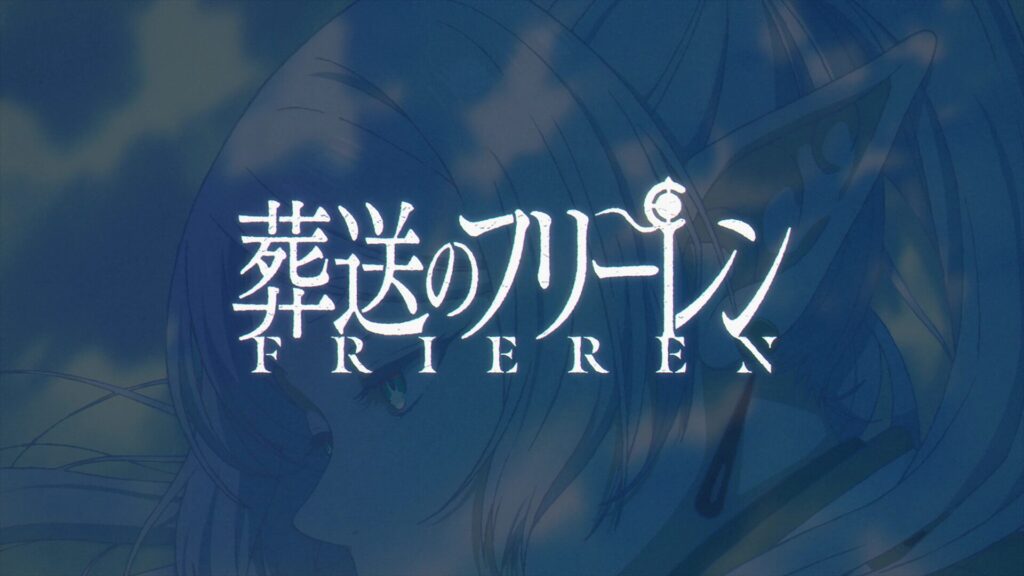
セリフ #6 – 空飛ぶ馬車、ありえません
では、地面に衝突する直前に馬車を浮かせるというのはどうですか?自由落下を相殺できるか計算しないと威力を殺しきれないと、私たちはごちゃ混ぜのミンチになっちゃうからなんか怖いことを言ってる
Perhaps we can levitate the carriage for a moment, just before it crashes into the forest.
I’d need to calculate if I have the power to stop a free-fall.
If I can’t sufficiently reduce the force of our plummet, we’d be ground into minced meat.
Why’d you have to say it all scary-like?
🗣️ 語彙解説
levitate / ˈlɛvɪteɪt /(動詞):浮かせる、宙に浮かせる
→ 超能力や魔法などで物体を空中に保つときに使われます。
carriage / ˈkærɪdʒ /(名詞):馬車、車両
→ 特にヨーロッパ調の馬車などに使われる語です。
free-fall / ˈfriː fɔːl /(名詞):自由落下
→ 重力だけで落下している状態のことを物理用語でこう呼びます。
plummet / ˈplʌmɪt /(動詞):急落する、真っ逆さまに落ちる
→ 急激に下に落ちることを示す動詞で、抽象的にも使えます。
minced meat / mɪnst miːt /(名詞):ひき肉、ミンチ肉
→ 「バラバラに潰された」イメージで、比喩的に使われることもあります。
scary-like / ˈskɛri laɪk /(副詞的表現):怖い感じで
→ 会話的な表現で、「怖がらせるような言い方で」の意味になります。
📘 文法・構文・訳しにくい点の解説
Perhaps we can levitate the carriage for a moment, just before it crashes into the forest.
→ 「just before S V」で「〜する直前に」。時間のギリギリを狙うニュアンスが強い。
I’d need to calculate if I have the power to stop a free-fall.
→ 「I’d need to」は「I would need to」の短縮で、仮定的・慎重な提案の形。「if I have the power to~」は不定詞で目的を示す。
If I can’t sufficiently reduce the force of our plummet, we’d be ground into minced meat.
→ 仮定法未来。「If I can’t ~, we’d be ~」の形で「もし〜できなければ、〜だろう」の構造。過去分詞「ground」は「grind」の受動形。
Why’d you have to say it all scary-like?
→ 「Why did you have to ~?」で「なぜ〜しなければならなかったの?」という責めるような言い方。口語の「scary-like」は副詞的に使用。
📗 スラッシュリーディング訳
Perhaps we can levitate the carriage /
もしかすると馬車を浮かせられるかも /
for a moment, /
一瞬だけ /
just before it crashes into the forest.
森に激突する直前に。
I’d need to calculate /
計算しないといけない /
if I have the power /
自分に力があるかどうか /
to stop a free-fall.
自由落下を止める。
If I can’t sufficiently reduce /
もし十分に減速できなければ /
the force of our plummet, /
落下の衝撃を /
we’d be ground into minced meat.
私たちはミンチになるだろう。
Why’d you have to say it all scary-like?
なんでそんな怖い言い方をするのさ。
I’d need to calculate /
私は計算しないといけない /
if I have the power /
自分にその力があるかどうかを /
to stop a free-fall.
自由落下を止められるだけの。
If I can’t sufficiently reduce the force /
もし衝撃を十分に和らげられなかったら、 /
of our plummet, /
私たちの落下の力を、 /
we’d be ground into minced meat.
私たちはミンチになるでしょう。
Why’d you have to /
なんでわざわざそんな風に /
say it all scary-like?
怖く言うんですか?
セリフ #7 – 空を飛ぶのは、まだ40年の歴史
意外かもしれないけど私たち人類が空を食べるようになってから、まだ40年も経っていないそれまで空は魔族と魔物の独壇場だったんだ人類が使っている飛行魔法は魔族の魔法術式をそのまま転用したもので…小難しいことはいいから俺にも分かるように話してくれ原理がわからないまま使っているから応用ができないってこと
This may come as a surprise, but it has only been 40 short years since humankind first learned how to fly.
Until then, the skies were the exclusive domain of demons and monsters.
The flying magic you see us use today is actually a demon spell mankind was able to repurpose.
Nobody’s looking for a lecture, okay? So can you make the carriage levitate, or not?
We can’t adapt their spell, because we’ve merely copied the “how” without understanding the “why.”
🗣️ 語彙解説
exclusive /ɪkˈskluːsɪv/(形容詞):排他的な、独占的な
→ 他者を排除して特定の者だけが持つ・使う状態を表します。
repurpose /ˌriːˈpɜːrpəs/(動詞):別の目的に使う、転用する
→ 元の用途を変えて新しい目的に利用することを指します。
lecture /ˈlektʃɚ/(名詞):講義、お説教
→ 知識を教えるための話や、説教っぽい長話のことです。
levitate /ˈlevəˌteɪt/(動詞):浮かせる、空中に浮かぶ
→ 魔法や念力などで物や人を空中に浮かせることを意味します。
adapt /əˈdæpt/(動詞):応用する、適応させる
→ 何かを目的や状況に合わせて使えるように調整することです。
principle /ˈprɪnsəpəl/(名詞):原理、基本法則
→ 物事が成り立つ基本的な仕組みや考え方を示します。
📘 文法・構文・訳しにくい点の解説
it has only been 40 short years since…
→ 「It has been … since ~」で「~してから…年経つ」の意味。現在完了の時間表現。
the exclusive domain of demons and monsters
→ 「exclusive domain」は「〜だけの領域」という意味で、空を支配していた者たちを比喩的に表している。
was able to repurpose
→ 「be able to」は「~できた」、過去形で「実際に可能だったこと」を表す。
Nobody’s looking for a lecture, okay?
→ lecture(説教・講義)を否定文で使い、「誰も求めてないから」という口語的な否定表現。
copied the “how” without understanding the “why”
→ howとwhyを名詞化して対比。「方法だけを真似して、理由を理解していない」という構造。
📗 スラッシュリーディング訳
This may come as a surprise, /
これは驚くかもしれないが、
but it has only been 40 short years /
だが、たった40年しか経っていない
since humankind first learned how to fly.
人類が初めて空を飛ぶ方法を習得してから。
Until then, /
それまでは、
the skies were /
空は
the exclusive domain /
独占された領域だった
of demons and monsters.
魔族と魔物たちに。
The flying magic /
その飛行魔法は
you see us use today /
今私たちが使っている
is actually a demon spell /
実は魔族の魔法で
mankind was able to repurpose.
人類が転用したものだ。
Nobody’s looking for a lecture, okay? /
誰も講義を求めてないんだ、いいか?
So can you make the carriage levitate, or not?
で、馬車を浮かせることはできるのか?
We can’t adapt their spell, /
我々は魔族の魔法を応用できない、
because we’ve merely copied the “how” /
なぜなら方法だけをコピーして
without understanding the “why.”
原理を理解していないからだ。
セリフ #8 – 鏡レンゲの意匠に込められた意味
あの意匠は鏡レンゲ花言葉は久遠の愛情だこの地方じゃ、あれは恋人に送るものだぜ
That design is of a mirrored lotus.
In the language of flowers, it means “eternal love.”
Around these parts, it’s a common symbol to give to a lover.
🗣️ 語彙解説
design /dɪˈzaɪn/(名詞)
→ 模様、意匠。ここでは装飾やシンボルの図案を指す。
mirrored /ˈmɪrɚd/(形容詞)
→ 鏡のように反射する、対になっているような。→ mirrored lotus は「対称の蓮」のような意匠。
lotus /ˈloʊtəs/(名詞)
→ 蓮の花。東洋・仏教文化では神聖な花。
eternal /ɪˈtɝːnəl/(形容詞)
→ 永遠の、尽きることのない。→ eternal love は「久遠の愛情」。
symbol /ˈsɪmbəl/(名詞)
→ 象徴、シンボル。何かを代表する物やマーク。
lover /ˈlʌvɚ/(名詞)
→ 恋人、愛する人。
📘 文法・構文・訳しにくい点の解説
That design is of a mirrored lotus.
→ 「be of ~」で「~の意匠」「~に由来する」となる表現。
In the language of flowers, it means “eternal love.”
→ 花言葉を “the language of flowers” と表す定型表現。文頭に置いて強調。
Around these parts, it’s a common symbol to give to a lover.
→ 「around these parts」は「このあたりでは」の口語的な言い回し。「a common symbol to give to ~」で「~に贈る一般的な象徴」となる構文。
📗 スラッシュリーディング訳
That design is /
あの意匠は
of a mirrored lotus.
鏡レンゲのものだ。
In the language of flowers, /
花言葉では、
it means /
それは意味する
“eternal love.”
「久遠の愛情」を。
Around these parts, /
この地方では、
it’s a common symbol /
それは一般的なシンボルだ
to give to a lover.
恋人に贈るための。
セリフ #9 – 指輪に込められたもの
無くし物には慣れているヒンメルからもらったものはあれだけじゃないしねこれと同じ鏡レンゲの衣装の指輪だったんですよね花言葉は久遠の愛情だそうですそう知らなかった
I’ve grown used to losing things.
Besides, that ring isn’t all that Himmel gave me over the years.
The design. It has a mirrored lotus like my bracelet does.
In flower language, that means “eternal love.”
Huh. I didn’t realize that.
🗣️ 語彙解説
grown /ˈɡroʊn/(動詞)
→ 「grow」の過去分詞形で「〜になる」の意味。have grown used to ~ で「~に慣れてしまった」。
besides /bɪˈsaɪdz/(副詞)
→ 「それに」「~に加えて」。話題を追加するときの接続的副詞。
mirrored /ˈmɪrɚd/(形容詞)
→ 鏡のような、対称の。→ mirrored lotus は鏡合わせの蓮の意匠。
bracelet /ˈbreɪslət/(名詞)
→ ブレスレット、腕輪。装飾品や記念品として用いられる。
eternal /ɪˈtɝːnəl/(形容詞)
→ 永遠の、終わることのない。→ eternal love は「久遠の愛情」として訳される。
realize /ˈrɪəˌlaɪz/(動詞)
→ 気づく、理解する。「思っていなかったことを今理解した」ニュアンスがある。
📘 文法・構文・訳しにくい点の解説
I’ve grown used to losing things.
→ 「have grown used to ~ing」で「~することに慣れてしまった」という現在完了の慣用句。
that ring isn’t all that Himmel gave me
→ 「all that S V」で「SがVしたすべて」という強調表現。否定形で「それだけじゃない」というニュアンス。
It has a mirrored lotus like my bracelet does.
→ 「like S V」は「SがVするように」。ここでは「bracelet にもあるように」同じデザインを示す。
In flower language, that means “eternal love.”
→ 「in flower language」は花言葉で、that は前の名詞(mirrored lotus)を指す。
I didn’t realize that.
→ 「realize」は「認識する」「初めて気づく」の意味で、ここでは過去の驚きや発見を表す。
📗 スラッシュリーディング訳
I’ve grown used /
私は慣れてしまった /
to losing things.
物をなくすことに。
Besides, /
それに、 /
that ring isn’t all /
あの指輪だけがすべてじゃないんだ /
that Himmel gave me /
ヒンメルが私にくれたものの中で。
over the years.
長い年月を通して。
The design. /
あのデザインは、 /
It has a mirrored lotus /
鏡レンゲの意匠で /
like my bracelet does.
私のブレスレットと同じなんです。
In flower language, /
花言葉では /
that means “eternal love.”
それは「久遠の愛情」という意味らしいです。
Huh. /
へえ、 /
I didn’t realize that.
知らなかったよ。
セリフ #10 – ブレスレットの意味
諦めなくてよかったですね、フリーレン様そうかもねところで、なんでフェルンが鏡レンゲのブレスレットしてるの?シュタルク様がバカだからですひどい
You were close to giving up your search. Glad you didn’t?
Hm. Maybe I am.
I meant to ask, why exactly are you wearing a mirrored-lotus bracelet?
Because Mister Stark is an idiot.
No respect.
🗣️ 語彙解説
give up /ˌɡɪv ˈʌp/(句動詞)
→ あきらめる、放棄するという意味で、目標や希望を捨てるときに使う。
Glad /ɡlæd/(形容詞)
→ 「うれしい」「よかった」と感じているときに使う表現。ここでは省略文で疑問形になっている。
meant /ˈmɛnt/(動詞)
→ 「mean(意図する)」の過去形。「I meant to ask」で「聞こうと思っていた」と丁寧な導入。
exactly /ɪɡˈzæktli/(副詞)
→ 「正確に」「一体なぜ」と質問の焦点を明確にするときに使う。
idiot /ˈɪdiət/(名詞)
→ 「バカ、まぬけ」など、からかいや非難をこめた軽い表現。
respect /rɪˈspɛkt/(名詞)
→ 「敬意」「尊敬」の意味。ここでは「No respect.」という簡略な非難の言い回しで使われる。
📘 文法・構文・訳しにくい点の解説
You were close to giving up your search.
→ 「be close to ~ing」で「~しそうになる」。ここでは「探索をあきらめかけていた」となる。
Glad you didn’t?
→ 「Are you glad you didn’t give up?」の省略・口語形。主語と助動詞の省略に注意。
why exactly are you wearing ~?
→ 疑問詞+副詞「exactly」で「一体なぜ?」という強調表現。丁寧ながら問い詰めるニュアンスも。
Because Mister Stark is an idiot.
→ 質問への省略された返答構文。「Because」から始める会話特有のカジュアルな回答。
No respect.
→ 本来は “She has no respect.” のような完全な文の略で、相手の態度を批判する短縮表現。
📗 スラッシュリーディング訳
You were close /
君はかなり〜しかけていた /
to giving up your search.
探すのを諦めるところだったね。
Glad you didn’t? /
でもやめなくてよかったでしょ?
Hm. / Maybe I am.
そうかもね、 / たしかに。
I meant to ask, /
聞こうと思ってたんだけど、 /
why exactly are you wearing /
どうして君が身につけてるの? /
a mirrored-lotus bracelet?
鏡レンゲのブレスレットを。
Because Mister Stark is an idiot. /
シュタルク様がバカだからです。
No respect. /
ひどいなあ。
まとめ:想いは、ちゃんと伝えなければ届かない
Stark wanted to choose a birthday gift with Fern, /
シュタルクはフェルンの誕生日プレゼントを /
but he got nervous and said nothing. /
選びたかったが、緊張して何も言えなかった。
Fern, too, felt regret for being too harsh, /
フェルンもまた、自分の厳しい態度を後悔し、 /
and the two finally made up with honest words. /
本音を交わしてようやく仲直りする。
Elsewhere, Frieren searches for a ring from Himmel, /
そのころ、フリーレンはヒンメルの指輪を探していたが、 /
but realizes that it’s just one of many memories he left her. /
それもまた彼が遺した思い出のひとつだと気づく。
With help from others and a spell to find lost things, /
人々の協力と、なくし物を探す魔法によって /
she recovers it and smiles, /
彼女はそれを見つけ、微笑む。
carrying forward both memory and affection.
思い出も、愛情も胸に抱いたまま。
🗣️ 語彙解説(Waku Waku Word Dive)
make up(句動詞):仲直りする
→ 争いの後で関係を修復する場面に使われる表現です。
harsh /hɑːrʃ/(形容詞):厳しい、きつい
→ 感情的・言動的に強すぎる場合に使います。
regret /rɪˈɡrɛt/(動詞):後悔する
→ 自分の言動や判断を悔やむ感情を指します。
recover /rɪˈkʌvər/(動詞):取り戻す、回復する
→ なくした物や状態を元に戻すことを意味します。
affection /əˈfɛkʃən/(名詞):愛情、親しみ
→ 人や思い出に対する温かい気持ちを表す名詞です。
carry forward /ˈkæri ˈfɔːrwərd/(動詞句):受け継ぐ、持ち続ける
→ 思い出や感情、伝統などを未来に持ち運ぶ比喩表現です。


